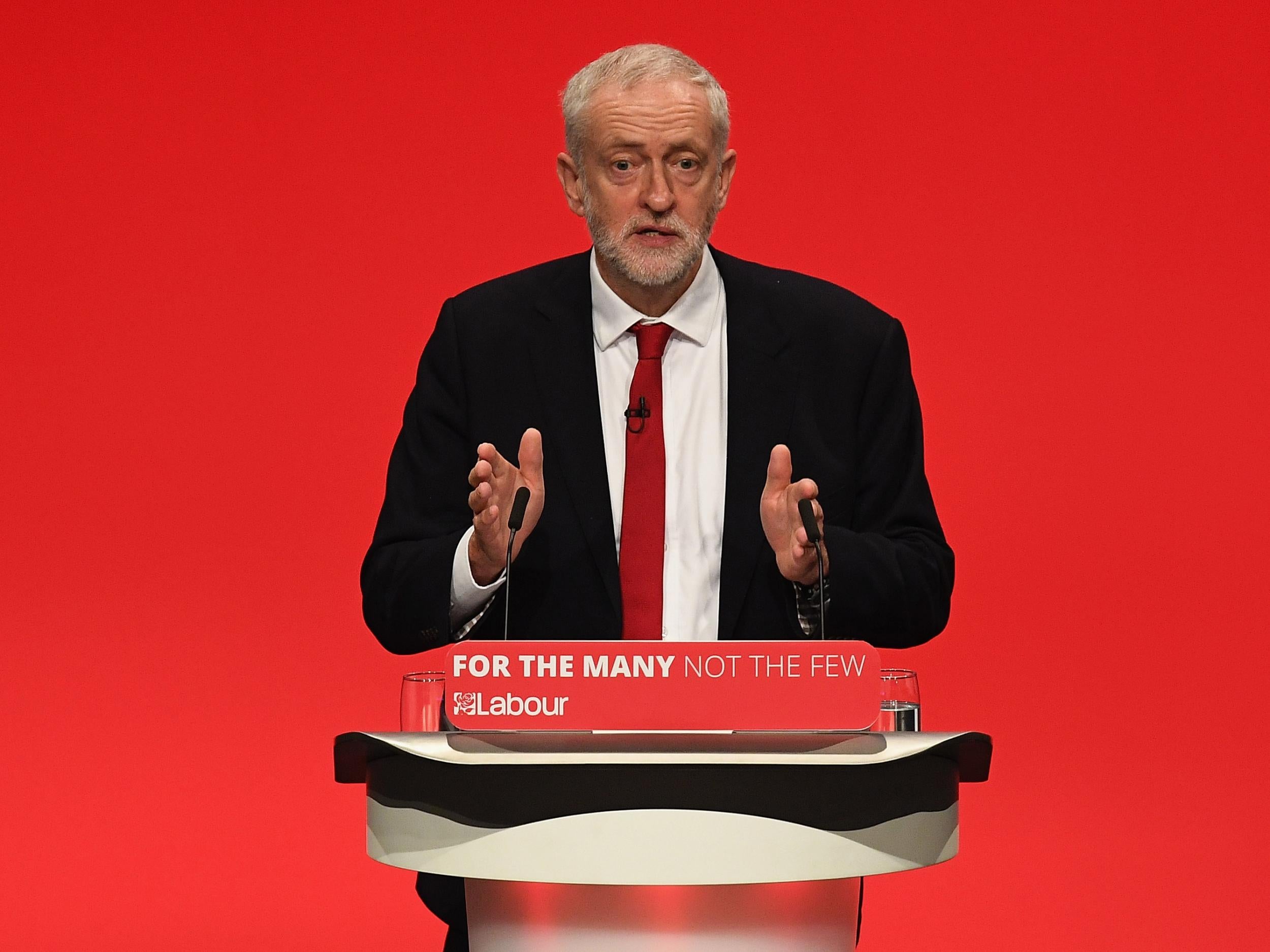It's not 'antisemitic' for Jeremy Corbyn not to celebrate the centenary of the Balfour Declaration – it's sensible
This celebratory dinner will no doubt see nostalgic celebrations of imperialism that ignore Britain’s role in fuelling an international conflict that has cost so many lives, and Corbyn is right to avoid it

Your support helps us to tell the story
From reproductive rights to climate change to Big Tech, The Independent is on the ground when the story is developing. Whether it's investigating the financials of Elon Musk's pro-Trump PAC or producing our latest documentary, 'The A Word', which shines a light on the American women fighting for reproductive rights, we know how important it is to parse out the facts from the messaging.
At such a critical moment in US history, we need reporters on the ground. Your donation allows us to keep sending journalists to speak to both sides of the story.
The Independent is trusted by Americans across the entire political spectrum. And unlike many other quality news outlets, we choose not to lock Americans out of our reporting and analysis with paywalls. We believe quality journalism should be available to everyone, paid for by those who can afford it.
Your support makes all the difference.The Balfour Declaration is a short letter, all things considered. A document of just 67 words. It was sent by Arthur Balfour, Foreign Secretary to Lord Rothschild who at the time was seen as a representative of British Jewry.
“His Majesty’s Government view with favour the establishment in Palestine of a national home for the Jewish people,” it reads, “and will use their best endeavours to facilitate the achievement of this object.” The caveat is added that no action shall be taken to “prejudice the civil and religious rights” of non-Jewish people living in Palestine.
Read in isolation it’s a letter that sounds rather inoffensive. With just a modicum of context it’s clear that – despite Theresa May’s desire for us all to feel proud of it – we as a nation should be deeply ashamed. Aside from the fact the document’s sentiment isn’t what happened in practice, Palestine wasn’t in the first place the British Government’s to offer or give.
In 1917, when the British Government – by almost all accounts an occupying force in Palestine – issued this promise, they did so as an empire giddy on power. The promise by a coloniser to create an ethnically controlled state on the land of those it oppresses isn’t something to be celebrated today.
By 1948, the disastrous consequences of the declaration were already evident. Hailed as Israel’s War of Independence by its supporters, the Nakba “disaster” forced some 700,000 Palestinian from their homes during Israel’s formation. During the Deir Yassin Massacre in the same year, hundreds of Palestinians were killed in their homes. According to the United Nations, some five million Palestinian refugees are eligible for their services today, meanwhile Israel and Palestine look no closer to finding peace.
Next month will mark 100 years since this ill-fated declaration, and a celebratory dinner will be held in London to cement British and Israeli ties. In attendance at the dinner will be Israeli Prime Minister Benjamin Netanyahu, Theresa May and Labour’s Emily Thornberry too.
Jeremy Corbyn has declined an invitation to the occasion, and accusations of antisemitism against the Labour leader if not explicit, are already at least being inferred. “I do think it will not have been amiss for Mr Corbyn to understand that the Jewish community will have taken great heart and great comfort for seeing him attend such an event because it recognises the right of Israel to exist,” said Jonathan Goldstein, chairman of the Jewish Leadership Council.
There are the obvious arguments that are relevant here, the same ones that have been made time and time again. I could tell you that the Jewish community is not one cohesive body, its ideologies and outlooks not all common or shared. More than two-thirds of British Jews report to have a “sense of despair” every time an expansion of Israeli settlements in the West Bank and East Jerusalem is approved.
I could tell you that to be critical of the Israeli government is not antisemitic, and neither is the belief that the Israeli state is an illegitimate force in its current form. I could tell you that yelling antisemitism when it isn’t there weakens and undermines its all too real consequences.
But Corbyn’s decision to not attend this celebratory dinner? It’s really just a sensible and diplomatic decision from a man preparing to take to the global stage. If Britain is to have any role in facilitating a lasting peace in the region, its leadership can’t be seen to actively take sides in the conflict while undermining years of Palestinian oppression.
Netanyahu and his Government show no regard for Palestinian people: he has pledged that illegal settlements in the West Bank, which see Palestinians continuing to be forced from their homes, will be “here to stay”. Cosying up to right-wing despots might be Theresa May’s preferred modus operandi, but the company she decides to keep shouldn’t be the bar.
In Prime Minister’s Questions on Wednesday afternoon, Theresa May stumbled once again in to territory that will prove impossible to navigate: on the one hand singing the praises of the damaging declaration, while also reaffirming a supposed commitment to Palestinians too.
Saying no to a dinner, which will no doubt see nostalgic celebrations of imperialism that ignore Britain’s role in fuelling an international conflict that has cost so many lives, will do no favours in any attempt to find a peaceful solution in Israel and Palestine. Corbyn is right to steer well clear of this party. An antisemitic decision? That couldn’t be further from the truth.
Join our commenting forum
Join thought-provoking conversations, follow other Independent readers and see their replies
Comments